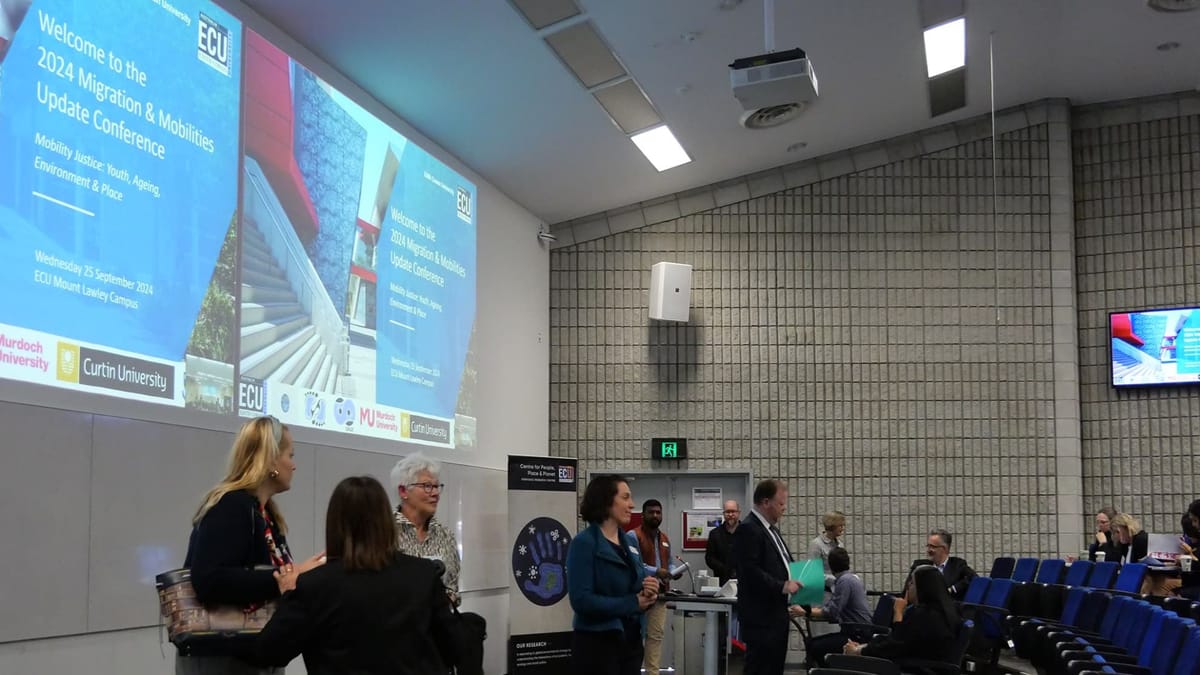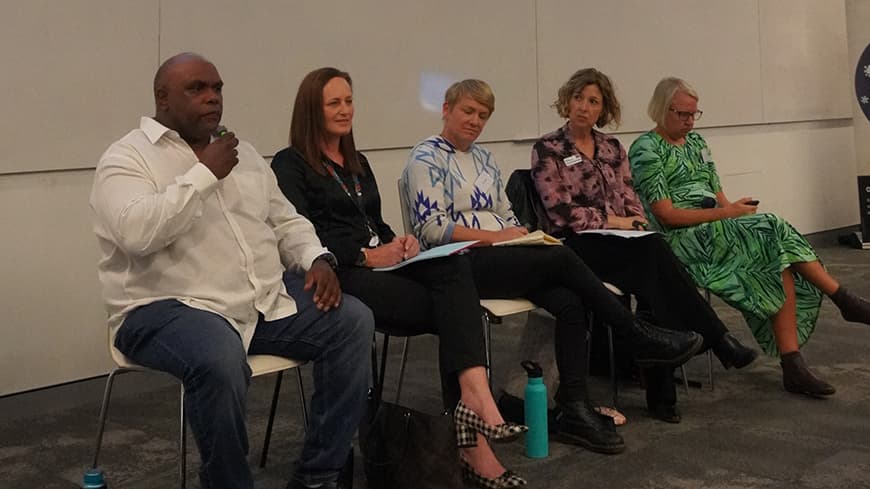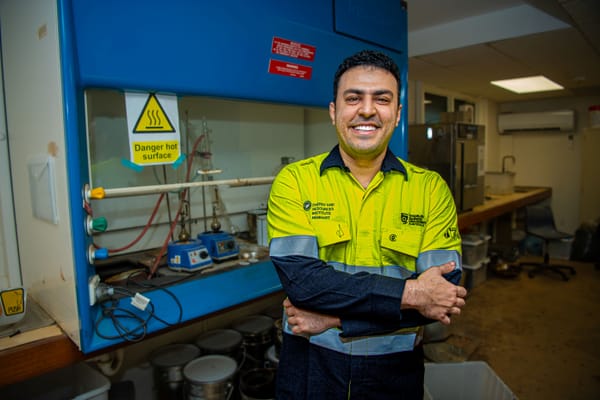ECU bringing academics, government and community together to discuss mobility justice
ECU hosted the 9th WA Migration and Mobilities Update Conference which brought together academics, government, policymakers, not-for-profits, and communities to facilitate dialogue surrounding migration and settlement.

First published by Edith Cowan University
Mobility justice is a critical ethical issue of our time.
Equitable access to visas and services is central to participation in society, to economic and educational opportunities, and to building social connection and a sense of belonging. Yet the right to move or to remain at home, and to live a full life in a safe place, is unevenly distributed.
For the first time, Edith Cowan University (ECU) hosted the 9th Migration and Mobilities Update Conference which brought together government, policymakers, not-for-profits, communities, and academics to explore these issues.
Since 2015, the annual Conference builds and strengthens links and facilitates dialogue between universities, government, non-government, and community sectors. Supported by a Steering Committee with representatives from each of these sectors, the Conference’s goal is to ensure that public debate on migration and settlement is informed by high quality research.

Mobility justice
The theme of the 2024 Conference was Mobility Justice: Youth, Ageing, Environment and Place, a critical ethical issue of our time.
Vice-Chancellor Professorial Research Fellow, Director of Social Ageing (SAGE) Futures Lab and leading the ECU TRACS Migration Research Network, Professor Loretta Baldassar opened the Conference by stating that mobility justice – the right to move – has become the main dimension of inequality in the world today. by stating that mobility rights are of vital importance to equality and justice.
"For many, mobility is key to freedom and safety, access to work and education, as well as to care for, and to be cared for by, family and friends," Professor Baldassar said.
"Access to legitimate movement as well as control over the terms of this movement – is unevenly distributed over the world."
Youth and Mobility Justice
The first panel of the Conference was chaired by ECU School of Arts and Humanities Lecturer, Dr Jamal Barnes . The panel raised questions and discussed the challenges young people, and in particular students face when migrating and building a fulfilling life in Australia, and how migration policies can be developed to advance mobility justice for young people.
The keynote was delivered by Monash University's Lecturer in Sociology, Dr Sylvia Ang.
Dr Ang shared that there is a tension between migration policy that restricts access to temporary and permanent visas for lower income vocational training and education students and graduates, and the labour shortages in the roles and industries they are trained to work in.
Australian policy implies a preference for well resourced, highly educated middle-class migrants, yet fails to consider how these 'ideal' migrants may not want to work in the industries and sectors that need them.

Ageing and Mobility Justice
Chaired by Vice-Chancellor's Research Fellow, Dr Catriona Stevens , the second panel of the day highlighted mobility justice issues across the life course.
Australian migration history has involved several waves of people coming from different places and at different times, resulting in a highly diverse ageing population.
Professor Baldassar said ageing is a migration issue and migration is an ageing and aged care issue pointing out that, "a third of older Australians were born overseas, making language and culture issues a critical issue in aged care."
"At the same time, Australia relies heavily on recent migrants to deliver our aged care services. About 40% of our aged care work-force are migrants, most of them on temporary visas, making them an equally vulnerable population."
It was noted that it is vital for policies to understand the specific challenges faced by the youngest and oldest migrants in order to best support them.

Place, Environment and Mobility Justice
The last panel of the Conference highlighted mobility justice in relation to place and environment with a special focus on how to support those communities affected by climate change and natural disasters. The panel was chaired by ECU School of Arts and Humanities, Associate Professor Justine Dandy.
During the panel discussion, Postdoctoral Research Fellow, Dr Zoe Leviston from the Australian National University pointed out that migration as an adaptive strategy to climate change is more of a choice for some than for others.
Structural inequities that mean more privileged people can move away increases exposure to risk for people who remain, particularly if policy decisions do not support the people less able to move to continue living in place.
The 2024 Conference was organised by the ECU TRACS Migration Research Network, with support from the ECU Centre for People, Place and Planet, the School of Arts and Humanities, and ECU Social Ageing (SAGE) Futures Lab.
The WA Migration and Mobilities Update Conference will be held at Murdoch University next year.




